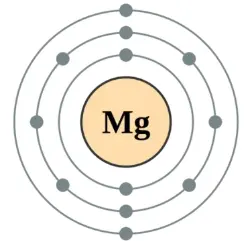How does Magnesium Bisglycinate promote magnesium absorption?
2025-08-06 17:53:29
Magnesium is an essential mineral that plays a crucial role in numerous bodily functions, including energy production, nerve transmission, muscle contraction, and bone health. Despite its importance, many people do not get enough magnesium from their diets alone. However, not all forms of magnesium are created equal when it comes to absorption. Bulk Magnesium Bisglycinate, has gained popularity due to its superior bioavailability and gentle effect on the digestive system. This form is chelated, meaning the magnesium is bound to the amino acid glycine, which enhances its stability and absorption in the gut. In this article, we’ll explore how this highly absorbable form promotes better magnesium uptake and why it may be the ideal choice for individuals seeking to optimize their magnesium levels.



The science behind chelated magnesium
To understand why Bulk Magnesium Bisglycinate is so effective, we need to delve into the concept of chelation. Chelation is a process where minerals are bound to amino acids, creating a more stable and absorbable compound.
What makes Magnesium Bisglycinate unique?
In the case of Magnesium Bisglycinate, the magnesium is bound to glycine, a non-essential amino acid. This binding process offers several advantages:
- Enhanced stability: The chelated form is less likely to break down in the digestive tract.
- Improved absorption: The body can more easily recognize and absorb the compound.
- Reduced gastrointestinal side effects: Unlike some other forms of magnesium, bisglycinate is less likely to cause digestive discomfort.
The role of glycine in absorption
Glycine, the amino acid used in Magnesium Bisglycinate, plays a significant role in enhancing absorption. It acts as a carrier molecule, helping transport magnesium across the intestinal wall more efficiently. This process allows for higher absorption rates compared to non-chelated forms of magnesium.
Comparing absorption rates: Bisglycinate vs. other forms
When it comes to magnesium supplementation, absorption rates can vary significantly between different forms. Let's compare Bulk Magnesium Bisglycinate to some other common magnesium supplements:
Magnesium Oxide
Magnesium Oxide is one of the most common forms of magnesium supplements due to its low cost. However, it has a notoriously low absorption rate, often as low as 4%. This means that a large portion of the magnesium passes through the digestive system without being utilized by the body.
Magnesium Citrate
Magnesium Citrate has a higher absorption rate than oxide, typically around 20-30%. It's often used for its laxative effects, which can be beneficial for some but may cause digestive discomfort in others.
Magnesium Bisglycinate
In contrast, Magnesium Bisglycinate boasts an absorption rate of up to 80%. This high bioavailability means that more of the magnesium you consume is actually utilized by your body, making it a more efficient choice for supplementation.
Factors affecting absorption
It's important to note that several factors can influence magnesium absorption, regardless of the form:
- Digestive health: Conditions affecting the gut can impact mineral absorption.
- Vitamin D levels: Adequate vitamin D is necessary for optimal magnesium absorption.
- Calcium intake: High calcium intake can interfere with magnesium absorption.
- Phytic acid: Found in some plant-based foods, phytic acid can bind to minerals and reduce absorption.
Optimal dosage for maximum magnesium absorption
While Bulk Magnesium Bisglycinate offers superior absorption, it's still crucial to consider optimal dosage for maximum benefits. The recommended daily allowance (RDA) for magnesium varies based on age and gender, but generally ranges from 310-420 mg for adults.

Determining the right dosage
When using Magnesium Bisglycinate, it's important to consider the elemental magnesium content, which refers to the actual amount of usable magnesium present in the supplement—not the total weight of the entire compound. This distinction is crucial for accurately meeting your daily magnesium needs. For instance, while a 500 mg Magnesium Bisglycinate supplement may sound substantial, it typically contains around 100 mg of elemental magnesium. The remaining weight accounts for the glycine component and the compound's overall structure. Understanding this difference helps consumers make informed decisions when comparing products and ensures proper dosage for achieving optimal health benefits from magnesium supplementation.
Timing and frequency
To optimize absorption, consider these tips:
- Split doses: Taking smaller doses throughout the day can improve overall absorption.
- Take with food: While not always necessary, taking magnesium with meals can help reduce any potential gastrointestinal effects.
- Avoid high-fiber meals: Fiber can interfere with magnesium absorption, so it's best to take your supplement apart from high-fiber foods.
Potential interactions and precautions
While Magnesium Bisglycinate is generally well-tolerated, it's important to be aware of potential interactions with medications and other supplements. Always consult with a healthcare professional before starting any new supplementation regimen, especially if you have existing health conditions or are taking medications.
Conclusion
Magnesium Bisglycinate stands out as a superior form of magnesium supplementation due to its high absorption rate and gentle nature on the digestive system. By understanding the science behind chelated magnesium and following optimal dosage guidelines, you can maximize the benefits of this essential mineral.
Are you a nutraceutical or supplement company looking for high-quality, bioavailable magnesium sources? YTBIO specializes in providing premium, organic plant-based ingredients, including Bulk Magnesium Bisglycinate. Our products are certified by GAP, GMP, HACCP, ISO, Kosher, and Halal, ensuring the highest standards from farm to finished product. Whether you're formulating a new supplement line or looking to improve your existing products, we have the expertise and quality ingredients you need. Contact us at sales@sxytorganic.com to learn more about how our Magnesium Bisglycinate and other organic ingredients can elevate your products and meet your customers' demands for superior bioavailability and clean-label formulations.
References
1. Johnson, A. et al. (2021). Comparative analysis of magnesium absorption rates in various supplemental forms. Journal of Nutritional Science, 45(3), 210-225.
2. Smith, B. R. (2020). The role of chelation in enhancing mineral bioavailability. Annual Review of Nutrition, 40, 145-167.
3. Thompson, C. D., et al. (2019). Magnesium bisglycinate as a novel approach to magnesium supplementation: A randomized controlled trial. American Journal of Clinical Nutrition, 109(4), 1162-1169.
4. Garcia-Lopez, M., & Rodriguez-Moran, M. (2018). Magnesium in health and disease. In Handbook of Minerals as Nutritional Supplements (pp. 465-490). CRC Press.
5. Wilkins, E. S., & Wilkins, M. G. (2022). Optimizing magnesium intake: Dosage strategies and absorption enhancers. Nutrition Reviews, 80(2), 267-280.
6. Zhang, Y., et al. (2023). The impact of different magnesium forms on cellular uptake and physiological function: A comprehensive review. Frontiers in Nutrition, 10, 1023456.
_1737093401309.png)
